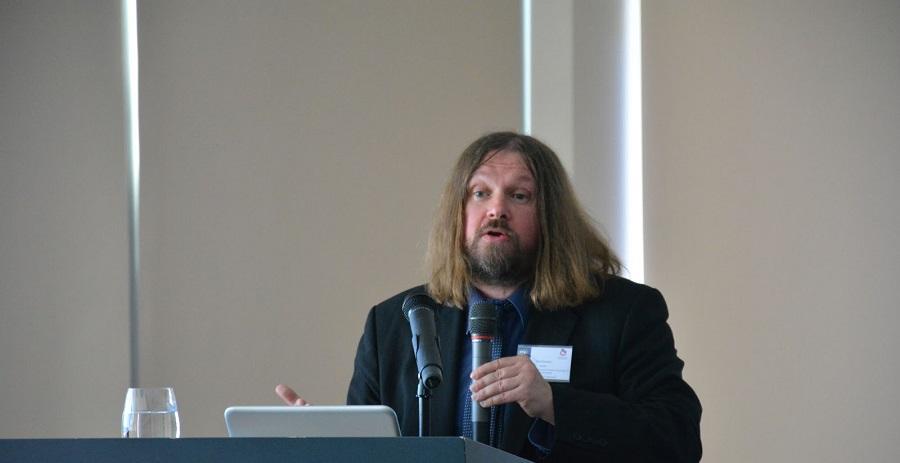

The role of community lifelong learning centres in supporting marginalised students
Dr Paul Downes addresses EU Presidency Forum on the role of community lifelong learning centres in supporting marginalised students
The Romanian EU Presidency and Cedefop Policy forum: What role for community lifelong learning centres? The potential of one-stop shops for preventing youth at risk from disconnecting took place in Brussels, on May 29th, 2019.
Dr. Paul Downes, Associate Professor of Education (Psychology) and Director of the Educational Disadvantage Centre at DCU’s Institute of Education, gave an invited presentation Community Lifelong Learning Centres as a Gateway to Multidisciplinary Support Teams to set out the framework for the Forum’s dialogue.
The Forum contributors included: Michael Teutsch, Head of Unit for Schools, DG Education, Youth, Sport and Culture, European Commission; Dr Max Uebe, Head of Unit, Employment Strategy, DG Employment, Social Affairs & Inclusion, European Commission; Johanna Koponen, Counsellor, Permanent Representation of Finland to the European Union and Professor João Costa, The Secretary of State for Education, Portugal.
The Romanian EU Presidency and Cedefop Policy Forum is a direct expansion on the Roundtable on this theme hosted by the Educational Disadvantage Centre, in the Institute of Education, DCU in September 2017, attended by the EU Commission and Cedefop (the EU Commission’s Centre for Vocational Education and Training). The Educational Disadvantage Centre has worked with the Lifelong Learning Platform for the official briefing paper that informs this EU Presidency Forum Implementing a Holistic Approach to Lifelong Learning: Community Lifelong Learning Centres as a Gateway to Multidisciplinary Support Teams: http://www.cedefop.europa.eu/files/briefingpaper_cllc.pdf
The Lifelong Learning Platform represents over 40 European-wide civil society networks in the field of education, composed of 50,000 institutions and associations involved in lifelong learning in Europe.
Welcoming this event, Dr. Paul Downes said:
“This EU Presidency Forum offers an exciting opportunity to combine the forces of two key supports - multidisciplinary teams in and around schools, and community lifelong learning centres - into a one-stop-shop for marginalised students.
It provides an important opportunity to see pioneering projects in this area – many of whom are local projects that we have worked directly with, such as those in Stockholm, Munich and Dublin. These are examples of the mediating role that the Educational Disadvantage Centre plays between local community and municipality contexts, and EU and national policy makers. It is to be strongly hoped that these integrated one-stop-shop gateway models will inform future EU policy documents and funding strands, such as the European Social Fund (ESF), contributing to the future postET2020 agenda for education in the EU. This model brings services closer to the community to engage so-called ‘harder to reach’ groups and recognises there is not a one-size-fits-all approach to supporting people with complex needs.”
